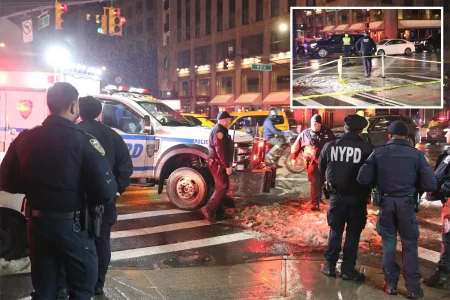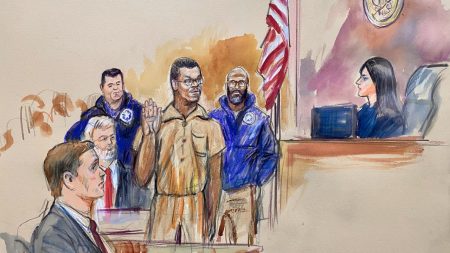The Human Side of Tragedy: Unraveling the Charlie Kirk Assassination Case
In a somber announcement that brought a swift conclusion to a national tragedy, Utah Governor Spencer Cox revealed the arrest of 22-year-old Tyler Robinson as the suspect in the assassination of Turning Point USA founder Charlie Kirk. The breakthrough came on September 11 when a family member of Robinson contacted authorities after he had seemingly confessed to the crime. This shocking act of violence has not only ended the life of a prominent conservative figure but also irrevocably altered the lives of both families involved in this tragedy—the grieving Kirk family now without a husband and father, and the Robinson family who made the difficult but necessary decision to turn in one of their own.
Behind the headlines of this national story lies the ordinary background of a young man whose path took a devastating turn. Robinson’s life in Washington County, Utah appeared unremarkable—social media showing typical family celebrations, birthdays, and school achievements. He attended local schools from 2008 to 2021, eventually enrolling at Utah State University, though only for a single semester in 2021 as a pre-engineering major. At the time of his arrest, Robinson was in his third year of an electrical apprenticeship program at Dixie Technical College, suggesting a young man pursuing vocational training. Nothing in his educational background immediately signaled the potential for violence, raising the haunting question of how someone on an ordinary life trajectory could allegedly commit such an extraordinary act of political violence.
The investigation unfolded with remarkable speed, relying on both modern surveillance and human connections. Authorities identified Robinson in surveillance footage arriving at Utah Valley University in a gray Dodge Challenger shortly before the shooting, wearing casual clothing—a maroon T-shirt, light-colored shorts, a black hat with a white logo, and light-colored shoes. This same vehicle was later spotted at the Robinson family home in Washington, Utah. But perhaps more telling than the surveillance evidence were the accounts from those who knew Robinson. Family members shared with investigators that he had “become more political in recent years,” even mentioning Kirk’s upcoming appearance at UVU during a recent family dinner where they discussed “why they didn’t like him and the viewpoints that he had.” His roommate revealed disturbing messages Robinson had shared on Discord, referencing a rifle, engraved bullets, and watching drop points—digital breadcrumbs that would later help connect him to the crime.
The physical evidence recovered painted a chilling picture of premeditation. Investigators found a rifle wrapped in a “dark-colored towel” north of UVU’s Campus Drive Road—a Mauser Model 98 .30-06 caliber bolt action rifle with a mounted scope. The discovery of engraved casings found with the weapon suggested a level of preparation and intentionality that transforms this from a spontaneous act to one that was carefully considered. This evidence, combined with the digital trail and eyewitness accounts, created a compelling case that quickly led to Robinson’s arrest. What remains unclear, and what may emerge in the coming legal proceedings, is the full extent of Robinson’s motivations and whether he acted alone or was influenced by others in planning and executing this attack.
In his announcement, Governor Cox placed special emphasis on thanking Robinson’s family members “who did the right thing” by coming forward with their suspicions. This acknowledgment highlights one of the most heart-wrenching aspects of this case—the moral courage required for a family to turn in one of their own when they suspect involvement in a heinous crime. Their decision represents both a personal tragedy and a civic duty fulfilled under the most difficult circumstances imaginable. It also serves as a powerful reminder that in a polarized political climate, basic human decency and respect for life must transcend ideological differences. The family’s action may have prevented further violence and brought swift closure to a case that could have otherwise lingered as an open wound in the national consciousness.
As the legal process begins, the ripple effects of this assassination continue to spread outward. Governor Cox rightly characterized this as “a very sad day for our country, a terrible day for the state of Utah,” while expressing gratitude for the opportunity “to bring closure to this very dark chapter in our nation’s history.” His condolences to Kirk’s family—his wife Erika, his parents, and his two young children—remind us of the profound human cost of political violence. The assassination of Charlie Kirk represents not just the loss of a controversial political figure but a husband, father, and son. Similarly, the arrest of Tyler Robinson means not just the apprehension of a suspect but the devastation of another family forced to reckon with unimaginable circumstances. In the midst of political division, this tragedy calls for reflection on our shared humanity and the need to vigorously reject violence as a means of political expression, regardless of one’s position on the ideological spectrum.











